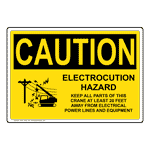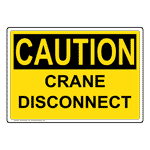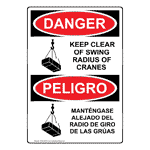
Crane Operator Requirements: The End of Medical Evaluation

The National Commission for the Certification of Crane Operators (NCCCO) has removed the requirement for a physical (medical) evaluation for candidates for its crane operator requirements. The change took effect January 1, 2020, and applies to all NCCCO operator certifications. NCCCO written and practical exam requirements are unaffected by the change.
The decision was made because the physical demands placed on a certified crane operator change according to such factors as the type and configuration of the crane and the environment it is working in. These facts are known only to the employer rather than the certification body, according to NCCCO CEO Thom Sicklesteel.
“This is not in any way to minimize the importance of ensuring an operator is physically qualified, since physical examinations are a critical part of qualifying an operator,” said Sicklesteel. “But they do not align with the certification component.” Certifications are based on crane type, he said, whereas physical requirements are based on the specific crane to be operated and can be materially different for cranes even within the same crane type.
Employer Responsibility
“Jobs where the cranes are moving to multiple positions or that have higher cyclical work are typically more demanding,” Sicklesteel said. “Employers are required to qualify their crane operators by determining whether they are able to operate the specific crane they will work on, perform the type of work they will be assigned, and address any accommodations that may or may not be provided.” Certification bodies can’t know such details, so they cannot determine whether or not an operator is physically qualified.
The ASME B30.5 standard also requires more frequent physical examinations than the established recertification schedules. Also, due to privacy and legal concerns, physical qualifications are not portable between employers.
OSHA Crane Operator Requirements
Crane Operation Safety Signs
 |  |  |  |
“Now that OSHA requires employers to conduct evaluations of all of their operators in the context of the equipment they will use and the work they will be doing, it seems only appropriate that it should be the employer who can also best make the determination of each operator’s physical abilities,” Sicklesteel said.
Per the OSHA Rule, the employer’s evaluation must consider the size and configuration of the crane the operator will use. This includes lifting capacity, boom length, attachments and counterweight set-up – factors that are not relevant to the operator’s certification. Once the operator has been evaluated on a specific size and configuration of crane, that operator may operate other equipment that does not require substantially different skills, knowledge or ability to recognize and avert risk to operate.
The goal of certification is to demonstrate a baseline level of knowledge and skill needed to operate equipment safely, as well as the ability to recognize and avert risks associated with operation. OSHA requires the certification-issuing entity (e.g., NCCCO) be accredited by a nationally recognized accrediting agency (ANSI or NCCA). This ensures industry-recognized criteria for written testing materials, practical examinations, test administration, grading, facilities/equipment and personnel have been met.
How Long Does NCCCO Certification Last?
You retain your certification for five years after taking the NCCCO crane operator test. You must recertify within the 12 months before your certification’s date of expiration. When you apply for recertification, you may renew your speciality and add another by examination.
All tests passed within the same 12 months apply toward the same certification cycle. Thus, any additional written and practical specialty exams within that period will expire on the same date as the initial examination. This way, all designations share the same five-year expiration date, regardless of the later exam dates.
If you add a new specialty designation within the 24 months prior to the expiration date of your certification, you are exempt from those particular five-year recertification tests. You will recertify, as described above, during the next five-year cycle. Therefore, all certifications will have the same expiration date.
However, passing a practical exam or written specialty exam more than 12 months after the initial core exam means you will need to retake.

